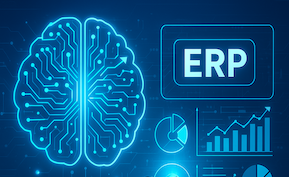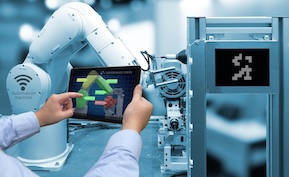Artificial Intelligence
Construction Management
AI Construction Software vs Traditional Construction Management: The Complete 2025 Comparison Guide

The construction industry stands at a technological crossroads. While artificial intelligence transforms project management capabilities, many contractors still rely on spreadsheets, manual processes, and reactive problem-solving. Understanding the fundamental differences between AI-enhanced and traditional construction management has become critical for maintaining competitive advantage in an increasingly demanding market.
What is Traditional Construction Management?
Traditional construction management relies on manual processes, historical data analysis, and human experience to plan, execute, and monitor projects. These systems depend on scheduled reporting, paper-based workflows, and reactive decision-making to address project challenges as they arise.
Key Characteristics of Traditional Construction Management:
- Manual progress tracking through site visits and reports
- Spreadsheet-based scheduling and resource allocation
- Reactive risk management addressing issues after they occur
- Limited real-time visibility into project performance
- Paper-based communication and documentation workflows
What is AI Construction Software?
AI construction software leverages machine learning, computer vision, and predictive analytics to transform project management from reactive oversight to proactive intelligence. These systems continuously analyze project data, predict potential issues, and automate routine tasks while providing real-time insights for strategic decision-making.
Revolutionary AI Capabilities:
- Predictive Project Analytics: Forecast delays, cost overruns, and safety risks weeks in advance
- Computer Vision Monitoring: Automated progress tracking and quality control through visual analysis
- Intelligent Scheduling: Dynamic resource optimization considering weather, availability, and dependencies
- Natural Language Interface: Query project data using conversational language for instant insights
- Autonomous Risk Management: Identify and address potential issues before they impact project outcomes
Detailed Feature Comparison
| Feature Category | Traditional Management | AI Construction Software |
|---|---|---|
| Progress Tracking | Manual site visits, weekly reports | Real-time computer vision analysis, automated updates |
| Schedule Management | Static schedules, manual adjustments | Dynamic scheduling with predictive optimization |
| Risk Management | Reactive problem-solving | Predictive risk identification and prevention |
| Cost Control | Historical budget analysis | Real-time cost forecasting with variance prediction |
| Quality Control | Manual inspections, checklists | AI-powered quality monitoring and defect detection |
| Safety Management | Compliance checklists, incident reporting | Continuous safety monitoring with predictive alerts |
Business Impact Analysis
Operational Efficiency Gains:
- Project Delivery Speed: AI construction software accelerates project completion by 15–25%
- Cost Accuracy: Predictive cost management reduces budget overruns by 60–75%
- Safety Performance: AI safety monitoring decreases incident rates by 40–60%
- Quality Improvement: Automated quality control reduces rework by 30–50%
Strategic Advantages:
- Competitive Bidding: More accurate estimates enable competitive pricing while protecting margins
- Client Relationships: Real-time project transparency improves client satisfaction and retention
- Resource Utilization: Intelligent scheduling optimizes crew and equipment allocation across projects
- Risk Mitigation: Predictive analytics prevent costly delays and safety incidents
Implementation Considerations
Traditional System Limitations:
- 6-month learning curve for new project managers
- Limited scalability as project portfolio grows
- Reactive approach leads to crisis management culture
- Manual processes consume 25–30% of project manager time
AI Construction Software Advantages:
- Rapid deployment with immediate predictive insights
- Scalable intelligence across unlimited project portfolio
- Proactive management culture through early warning systems
- Automated processes free managers for strategic activities
Cost-Benefit Analysis
Total Cost of Ownership Comparison (3-Year Analysis):
Traditional Construction Management:
- Software licensing: $50–100 per user per month
- Manual process labor: $125K–250K annually per project manager
- Error and rework costs: 5–15% of project budgets
- Total 3-year TCO: $1.2M–3.5M per 10-person team
AI Construction Software:
- Software licensing: $200–400 per user per month
- Implementation services: $100K–500K one-time investment
- Reduced error costs: 60–80% improvement in accuracy
- Total 3-year TCO: $750K–1.8M per 10-person team
ROI Justification:
Despite higher software costs, AI construction software typically delivers 250–500% greater ROI through operational efficiency, risk reduction, and competitive advantages.
Industry-Specific Considerations
General Contracting:
- AI Software: Multi-project coordination, subcontractor performance prediction, client communication automation
- Traditional: Manual coordination, reactive subcontractor management, status meeting-dependent communication
Residential Construction:
- AI Software: Customer experience optimization, quality prediction, automated progress communication
- Traditional: Manual customer updates, reactive quality control, paper-based progress tracking
Heavy Civil/Infrastructure:
- AI Software: Equipment optimization, weather impact prediction, regulatory compliance automation
- Traditional: Manual equipment scheduling, reactive weather planning, compliance checklists
Making the Right Choice
Choose Traditional Management if:
- Budget constraints prevent AI investment
- Simple projects with minimal complexity
- Limited technical expertise for AI implementation
- Regulatory environment restricts technology adoption
Choose AI Construction Software if:
- Seeking competitive advantage through operational excellence
- Managing complex projects with multiple stakeholders
- Growth plans requiring scalable project management
- Industry pressure demanding transparency and predictability
Future-Proofing Your Construction Business
The construction technology market is rapidly evolving toward AI-first platforms. Companies implementing traditional systems today risk technological obsolescence within 2–3 years as AI capabilities become standard client expectations.
Key Trends Driving AI Adoption:
- Client demands for real-time project visibility and predictive insights
- Insurance companies offering premium discounts for AI safety monitoring
- Regulatory requirements for detailed project documentation and compliance
- Competitive pressure from AI-enabled contractors winning more bids
Conclusion
The choice between AI construction software and traditional management represents a strategic decision with long-term implications for business competitiveness. While traditional methods provide familiar processes, AI construction software offers transformational capabilities that enable contractors to thrive in an increasingly complex and demanding market environment.
Construction companies evaluating project management solutions in 2025 should prioritize AI capabilities to ensure their technology investment supports future growth and competitive positioning.






